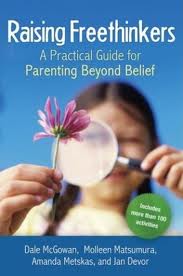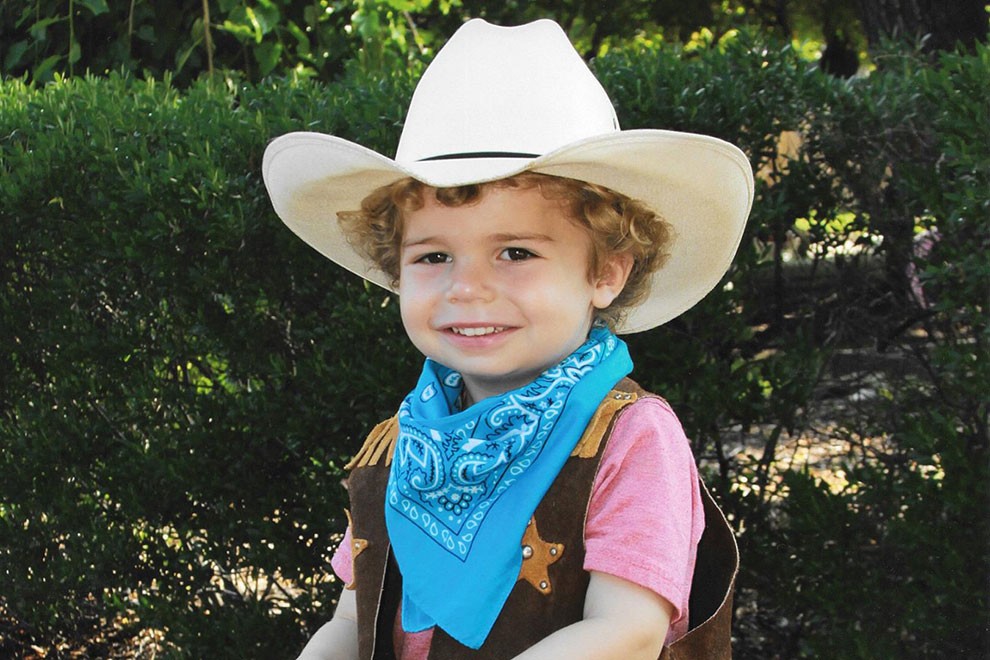In October 2010, I blogged about Wendy Mogel’s The Blessings of a B Minus, which is a book largely based on Jewish teachings. Then, in December of 2010, I featured Unplug the Christmas Machine by Jo Robinson and Jean C. Staeheli. So this holiday season I decided to read a different kind of parenting book, Raising Freethinkers: A Practical Guide for Parenting Beyond Belief by Dale McGowan, Molleen Matsumura, Amanda Metskas, and Jan Devor. With one out of six Americans now secular, I thought it’d be interesting to explore how non-religious parents teach their children meaning and purpose.
The book begins by explaining the humanist philosophy, which is rooted in love and reason, and annotates a list of best practices for nonreligious parenting:
- Encourage ever-wider circles of empathy.
- Encourage active moral development.
- Promote ravenous curiosity.
- Teach engaged coexistence.
- Encourage religious literacy.
- Leave kids unlabeled.
- Make death natural and familiar.
- Invite the questioning of authority.
- Normalize disbelief.
The prevailing idea behind the book is that the inquiring mind reigns supreme; however, the authors are quick to point out the importance of teaching your children to respect all individuals. For while you might not agree with another’s beliefs, that doesn’t mean that you shouldn’t respect them as a person. This book’s intent is not to declare who is right and who is wrong rather the following: How can we all get along together?
Essentially, Raising Freethinkers encourages parents to promote an unconditional love of reality. Dale McGowan writes, “I want my kids to see the universe as an astonishing, thrilling place to be no matter what, whether God exists or does not exist, whether we are permanent or temporary. I want them to feel unconditional love and joy at being alive, conscious, and wondering.”
Still, Raising Freethinkers recognizes that not everyone shares this same view. Some connect their happiness in life with God. Therefore, the book devotes a chapter to the difficulties of being a secular family in a religious world. Jan Devor writes, “By being a nonreligious parent in the United States, you have chosen the road less traveled. With this position comes the responsibility to educate your children about both religion and your non-religious stance.” Otherwise, your children may not be able to interact productively with religious peers.
The reality is that, as Devor writes, “More than ever before, families are now experiencing their own ‘pluralism projects’ as family members date or marry people of various religious backgrounds.” As Raising Freethinkers points out, an overwhelming portion of all news relates to religion. Devor claims, “It will fall on nonreligious parents to offer information, facts, and their own thoughts to help children make sense of the religious influence, for better and worse, on the world.”
Raising Freethinkers also reminds parents to encourage children to question their parents’ beliefs. The idea being that any kind of indoctrination, whether it be for or against religion, is problematic. Devor argues, “Make it clear that the factual claims of religion and science alike are hypotheses and the hypotheses stand or fall on their ability to withstand scrutiny.”
While I love the book’s suggestion to use literature to talk about ethics, my favorite idea for developing and keeping a sense of wonder is shake up the familiar. Dale McGowan writes, “Zoom in on the everyday with a microscope, turning salt into boulders and a drop of water into an aquarium. Zoom out from the roof of your own home and into space with Google Earth or with a telescope or binoculars.” It’s a great way to show children there’s more to the world than meets the eye.
I find this suggestion reminiscent of one of my all-time favorite movie scenes – the moment in Dead Poets Society when Robin Williams has his students stand on their desks to remind them that they must constantly look at the world in a different way. And I look forward to reading more of Raising Freethinkers, as I’d like to gain a greater understanding of the unique set of challenges facing secular parents, who raise moral children without religious guidance. I can’t remember the last time I stood on my desk. Maybe, it’s time.
Follow @WinterhalterV on Twitter for updates on blog posts or like Parenting by the Book on Facebook.
Read my other blog Befriending Forty.





